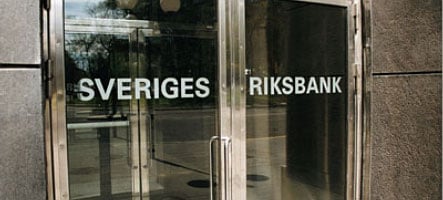In deciding to lower the rate once again, the Riksbank cited “very weak” economic activity abroad that has “hit Sweden hard”.
“Exports have fallen substantially and the situation on the labour market is continuing to deteriorate rapidly,” the bank said in a statement explaining the rate cut.
The Riksbank added that the economic downturn of 2009 has been “somewhat deeper” than what the bank had forecast back in April.
The bank’s decision to opt for further monetary policy expansion caught analysts unawares, with many believing that Sweden’s interest rate would remain unchanged.
“It’s surprising that the Riksbank did it again, especially when you considering the somewhat better figures that have come in,” said Henrik Mitelman, chief analyst with the SEB bank, to the TT news agency.
“The message to households and companies is that they can count on rates remaining more or less at zero for at least a year.”
While the Riksbank acknowledged there were signs of economic improvement, it argued that a lower interest rate, combined with Sweden’s current fiscal policy, would accelerate the nascent recovery.
The bank forecast positive GDP growth by 2010, but expected Sweden’s labour market to lag, with employment not likely to grow until 2011.



 Please whitelist us to continue reading.
Please whitelist us to continue reading.
Member comments